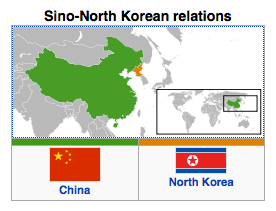China’s ‘Unwavering Policy’ On North Korea: A Print Media Analysis
By IPCS
By Ruhee Neog
In its coverage of Kim Jong-il’s death and its immediate aftermath on the region, the Chinese print media has been unsurprisingly consistent. Three prominent Chinese news dailies – People’s Daily, China Daily, and Global Times – have been surveyed to gauge the overall perspective, and since all three are state-controlled to varying degrees, to also determine the outlook of the Chinese government towards the issue of North Korea. The reading will have a twin emphasis: first, on the language used, and second, those aspects of China’s ‘strategic initiative in Northeast Asia’ that are revealed through a reading of recent reports. The overarching theme is the consolidation of Chinese influence, if any, over the North Korean regime during a time of transition. This will help address security and stability considerations on the Korean Peninsula, the use of the moment to recognize the US ‘pivot’ towards Asia, China’s attempt to demonstrate ‘strategic credibility’, and its economic motivations.
Reading between the lines

The language adopted in reference to Kim Jong-un is unequivocally positive and speaks of China’s role as a ‘powerful and secure backer’ (China’s N Korea initiative on right track, 21 December 2011, Global Times) to ensure the succession takes place without any ‘external interference’ (21 December 2011, Global Times). The tone in most recent articles on North Korea has been that of a patronizing, empathetic adult. For instance, an editorial in Global Times claims that “Although North Korea is small and poor; it possesses the ability to better itself. We do not glorify nor vilify North Korea. We should show understanding and tolerance in our relationship with it.” (China must ensure smooth transition, 20 December 2011) There is also a significant degree of self-congratulation on China’s overtures to North Korea, such as Hu Jintao’s visit to the North Korean embassy in Beijing to offer condolences and reassure its support, which is being touted as a ‘successful example of ‘international diplomacy’. (China must ensure smooth transition, Global Times, 20 December 2011). The manner in which the news of Jong-il’s death has been reported therefore creates the context for an analysis of Chinese perspective and strategy in the next section.
China on US’s ‘Asia pivot’
A Ministry of Foreign Affairs official was quoted in People’s Daily as saying that “China has neither the appetite nor the strength to keep the US out of the Asia Pacific, and the Pacific Ocean is wide enough for both countries to coexist and cooperate.” Be that as it may, it must be noted that the US policy shift has garnered wide coverage in the Chinese print media in the form of opinion editorials, articles and debates, which suggests that the US’s ‘Asia pivot’ could be unsettling enough for China to try and use North Korean uncertainty to their advantage. The international community’s reliance on sanctions on North Korea has been attested as failures, and China is the only one capable of holding some amount of sway in North Korean affairs. China’s importance therefore, especially during transition when one of a number of scenarios could unfold, cannot be overstated.
China could seek to capitalize on this by creating its own version of an ‘Asian-Pacific century’ (To whom does Pacific Century belong?, People’s Daily, 20 December 2011) of which China will be the main perpetrator and upstage the US’ ‘return to Asia’, which has been making headlines. This would also help address the issue of ‘stability’, a word stressed upon in all reports on North Korea, by building an ‘open, tolerant and complete Asia-Pacific’. The desire to stabilize the Korean Peninsula is one shared by all, but the means that China may wish to employ will give it a considerable push towards cementing its global status. First, it will use this opportunity to exhibit how its strategy in Northeast Asia is doable, and therefore, credible. Answering the US policy shift – an op-ed in China Daily states that the US shift towards ‘the East is for real. And for all we know, it is going to get stronger’ (19 December 2011) – by working towards strengthening ties with the North Korean regime plays into this.
South by northeast: economic motivations
Through its economic engagements with North Korea, China will attempt to develop links already established with the regime. China is North Korea’s biggest trading partner, and having very clearly announced its backing for Kim Jong-un already, China will hope to entrench its political and economic clout. Many Chinese believe that North Korea ought to subject itself to market reforms. This was already being attempted through the Rason Special Economic Zone during Kim Jong-il’s time, and China would like to continue this under Kim Jong-un’s leadership. The development of this zone will crucially allow the transportation of goods between China’s northeastern provinces and southern industrial areas, thereby dramatically reducing costs and addressing stability issues in northeastern China. North Korea also recently saw the opening of its very first supermarket, which bears Chinese signs. However, it remains to be seen whether the North Koreans see these as experiments for essential revenue generation or are genuinely considering opening up the economy in its entirety. Notwithstanding the lack of knowledge of North Korean motives, China would be keen on pursuing the agenda initiated under Il-jong.
A reading of the Chinese print media reports on events in North Korea therefore yields the understanding that China will continue with its ‘unwavering policy’ of friendship with North Korea, as enunciated by Hu Jintao (President Hu expresses condolences on Kim Il-jng’s death, People’s Daily, 21 December 2011) which, it will be hoped, will help address a number of Chinese concerns.
Ruhee Neog
Research Officer, IPCS
email: [email protected]
